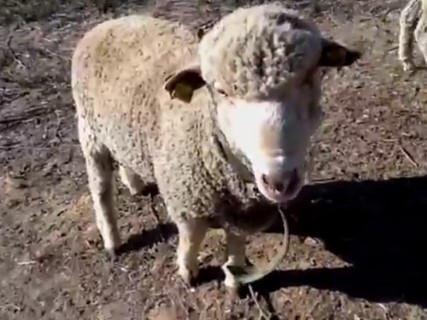In the United States, several strains of Merino sheep have evolved to suit various breeding objectives and environmental conditions. Among these strains, the "A" type Merino emerged in Vermont through a process of careful selection and inbreeding. Characterized by a heavy, wrinkly hide, the type A Merino possesses an angular form with limited carcass value, making it less suitable for commercial lamb and wool production.
On the other hand, the "B" type Merino, primarily developed in Ohio, represents a different breeding focus. Breeders in Ohio selected for a heavy fleece on a sheep with a more acceptable mutton form. While the type B Merino may have a body relatively free of wrinkles, it often exhibits heavy neck folds and folds behind the shoulders, on the thighs, and rear flanks. Despite these characteristics, the type B Merino is larger and better adapted to everyday conditions compared to the type A.
The "C" type, also known as Delaine Merino, stands out as the most practical Merino strain, particularly suited for range sheep production in the western and southwestern regions of the U.S. Delaine Merinos are medium-sized sheep, with mature ewes carrying full fleece averaging between 125 to 180 pounds, while rams are larger, weighing between 175 to 235 pounds. Notably, the Delaine Merino boasts a smooth body devoid of wrinkles, making it a preferred choice for the majority of Merino sheep in the U.S., where over 95 percent exhibit smooth or nearly smooth characteristics.
